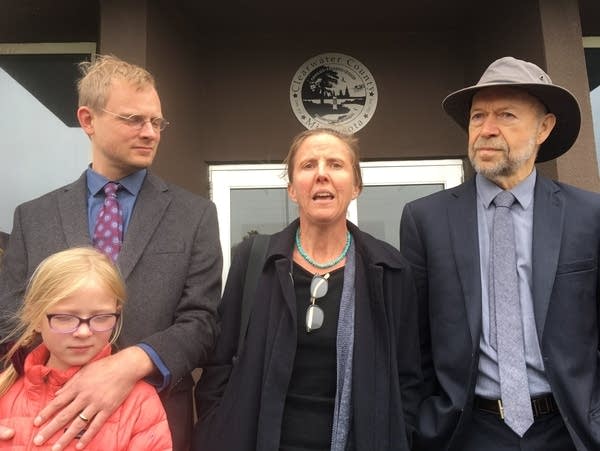Surprise acquittal in Enbridge pipeline protesters' case

Defendant Emily Johnston (center) speaks outside Clearwater County courthouse, with co-defendant Ben Joldersma, left, and his daughter, and former NASA scientist James Hansen after she was acquitted along with two other defendants.
Dan Kraker | MPR News
Go Deeper.
Create an account or log in to save stories.
Like this?
Thanks for liking this story! We have added it to a list of your favorite stories.


